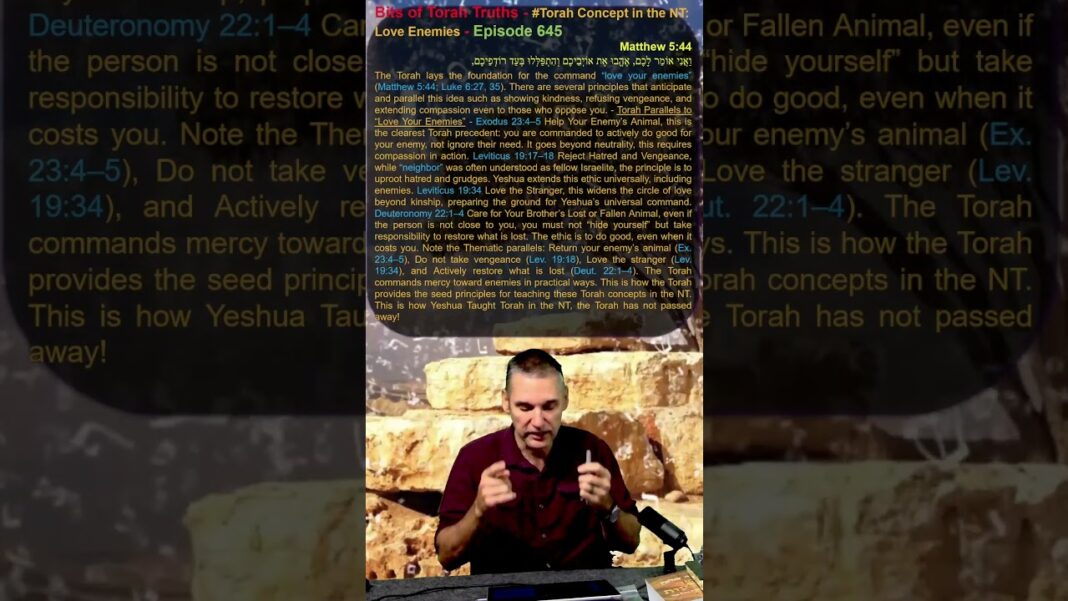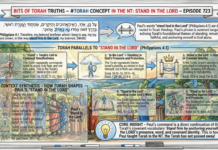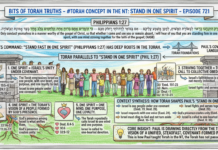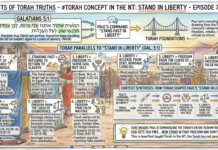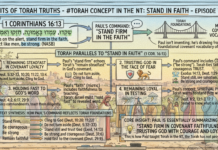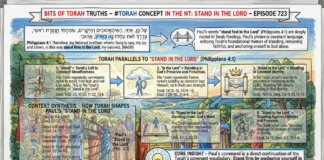Bits of Torah Truths – #Torah Concept in the NT: Love Enemies – Episode 645
Matthew 5:44
וַאֲנִי אוֹמֵר לָכֶם, אֶהֱבוּ אֶת אוֹיְבֵיכֶם וְהִתְפַּלְּלוּ בְּעַד רוֹדְפֵיכֶם,
Luke 6:27
6:27 ״אֲבָל אֲלֵיכֶם, הַשּׁוֹמְעִים, אוֹמֵר אֲנִי׃ אֶהֱבוּ אֶת אוֹיְבֵיכֶם, הֵיטִיבוּ עִם שׂוֹנְאֵיכֶם.
Luke 6:35
6:35 אַדְּרַבָּא, אֶהֱבוּ אֶת אוֹיְבֵיכֶם וְהֵיטִיבוּ וְהַלְווּ מִבְּלִי לְצַפּוֹת לִגְמוּל, וְרַב יִהְיֶה שְׂכַרְכֶם וּבְנֵי עֶלְיוֹן תִּהְיוּ, כִּי טוֹב הוּא גַּם לִכְפוּיֵי טוֹבָה וְגַם לָרָעִים.
#torah #torahwisdom #torahtruth #torahforlife #torah4you #torahtruth
Matthew 5:44
5:44 “But I say to you, love your enemies and pray for those who persecute you, (NASB)
Luke 6:27
6:27 “But I say to you who hear, love your enemies, do good to those who hate you, (NASB)
Luke 6:35
6:35 “But love your enemies, and do good, and lend, expecting nothing in return; and your reward will be great, and you will be sons of the Most High; for He Himself is kind to ungrateful and evil men. (NASB)
https://www.matsati.com/index.php/category/bits-of-torah-truths/
The Torah lays the foundation for the command “love your enemies” (Matthew 5:44; Luke 6:27, 35). There are several principles that anticipate and parallel this idea such as showing kindness, refusing vengeance, and extending compassion even to those who oppose you. – Torah Parallels to “Love Your Enemies” – Exodus 23:4–5 Help Your Enemy’s Animal, this is the clearest Torah precedent: you are commanded to actively do good for your enemy, not ignore their need. It goes beyond neutrality; this requires compassion in action. Leviticus 19:17–18 Reject Hatred and Vengeance, while “neighbor” was often understood as fellow Israelite, the principle is to uproot hatred and grudges. Yeshua extends this ethic universally, including enemies. Leviticus 19:34 Love the Stranger, this widens the circle of love beyond kinship, preparing the ground for Yeshua’s universal command. Deuteronomy 22:1–4 Care for Your Brother’s Lost or Fallen Animal, even if the person is not close to you, you must not “hide yourself” but take responsibility to restore what is lost. The ethic is to do good, even when it costs you. Note the Thematic parallels: Return your enemy’s animal (Ex. 23:4–5), Do not take vengeance (Lev. 19:18), Love the stranger (Lev. 19:34), and Actively restore what is lost (Deut. 22:1–4). The Torah commands mercy toward enemies in practical ways. This is how the Torah provides the seed principles for teaching these Torah concepts in the NT. This is how Yeshua Taught Torah in the NT, the Torah has not passed away!
